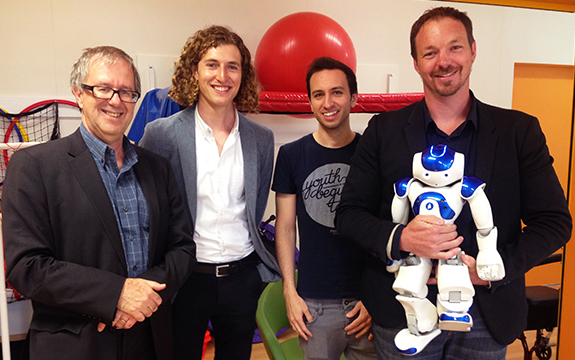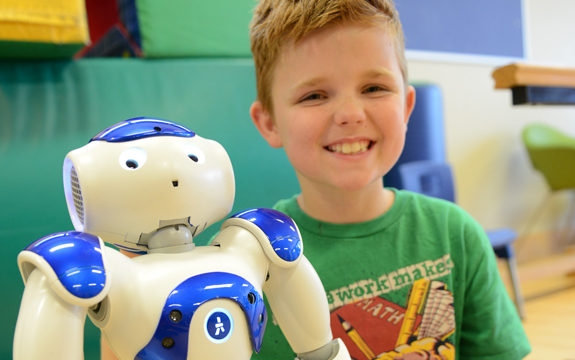NAO, the humanoid robot will assist in paediatric rehabilitation

In Summary
- Swinburne researchers develop software for robots working in paediatric rehabilitation
- Unique approach teams researchers with physiotherapists
- Collaboration with Royal Children's Hospital, TAC and The Brainary
So far interactions with the robot have been promising with the technology now close to being ready for use in formal clinical trials.
Swinburne University of Technology is leading the research and development of artificial intelligence software that will enable robots to assist paediatric patients undergoing rehabilitation.
In partnership with the Royal Children’s Hospital (RCH), the Transport Accident Commission (TAC) and The Brainary, computer scientists have been developing software for NAO, the humanoid robot to enhance therapeutic outcomes for children.
Lead researcher, Dr Chris McCarthy from the Department of Computer Science and Software Engineering at Swinburne has been working collaboratively with physiotherapists from RCH to program the robots.
“A unique aspect of our approach has been the central role of qualified physiotherapists in the programming of prescribed rehabilitation exercises,” Dr McCarthy says.
“So far interactions with the robot have been promising with the technology now close to being ready for use in formal clinical trials.”

NAO, the humanoid robot with nine year old Miles, who is recovering from injury.
The ability to maintain a child’s motivation and focus to perform prescribed exercises presents a huge challenge for paediatric rehabilitation.
A range of interactive therapeutic aids have been previously considered, including virtual reality and video games. However, there has been no formal evaluation of the therapeutic benefits of social robots in a paediatric setting.

“We wanted to consider the comparatively less explored potential of social robots,” Dr McCarthy says.
“In the future, we will explore the use of social robots like NAO for other paediatric health care needs beyond rehabilitation. We also hope to one day allow families with children undergoing rehabilitation to make use of this technology in their own home.”
This project was initiated by Professor Leon Sterling from Swinburne and made possible through a successful funding grant from TAC.

